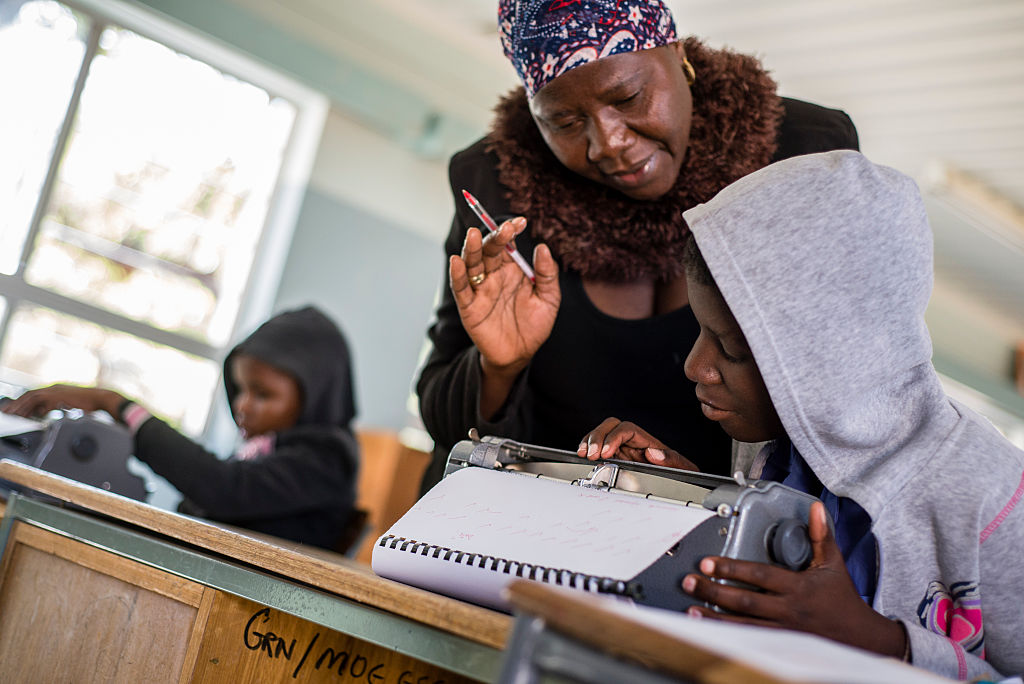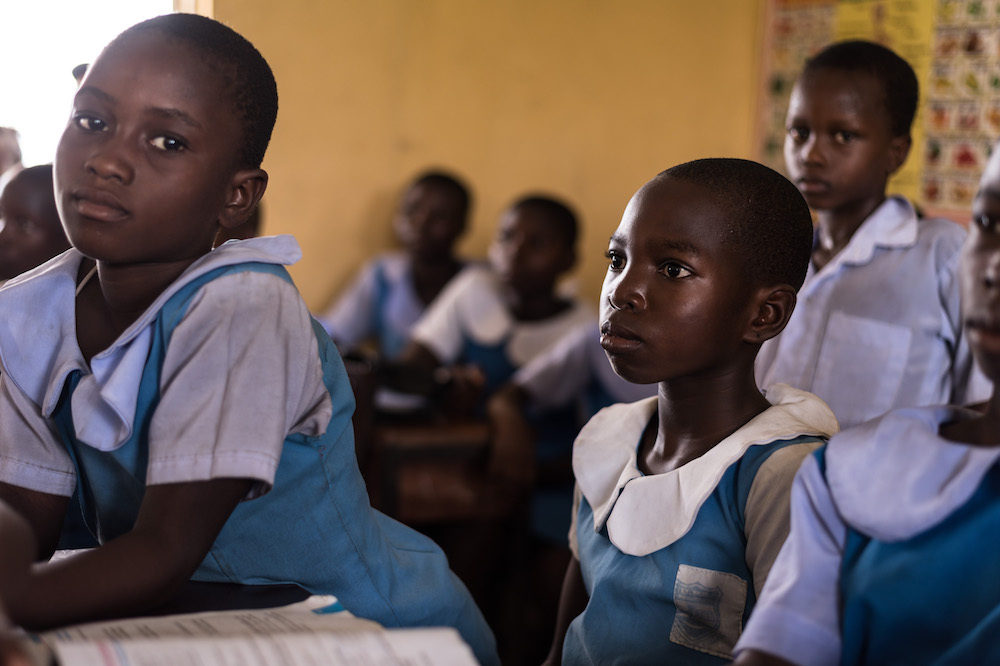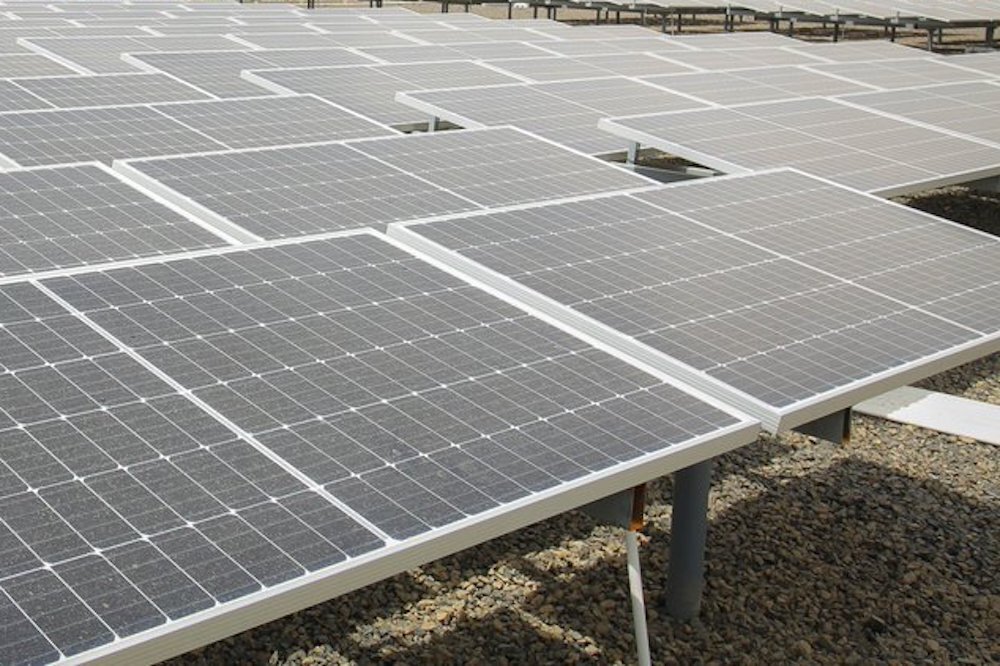
Five things you need to know this week about global education

Children in conflicts, Children with disabilities, Education in emergencies, Safe schools
We focus on the search for over 130 children after another mass kidnapping at a Nigerian school - and learning support for Syrian children with disabilities.
136 abducted in latest Nigeria school raid
More than 130 children were seized in the latest school kidnapping in northern Nigeria – but authorities have ruled out paying a ransom to secure their freedom.
Police are trying to track the route taken by the gang who grabbed the students, aged about seven to 15.
Gunmen on motorbikes struck in the town of Tegina in Niger state on Sunday. One person was shot dead and another seriously injured. The number of kidnapped students had been put at 200 but state officials later lowered that to 136.
The school’s owner, Abubakar Tegina, told Reuters news agency: “I saw between 20 and 25 motorcycles with heavily armed people.”
Deputy governor Ahmed Mohammed Ketso said the kidnappers were being pursued but added: “We don’t pay ransom to abductors. We are trying to negotiate to see how we can bring them back safely.”
The day school has about 300 students. Most of the 700 students kidnapped in recent months in northern Nigeria have been taken from boarding schools. The government denies paying ransoms but is widely believed to have done so.
The latest attack happened the day after the release of the remaining 14 students of a group abducted last month from a university in neighbouring Kaduna state.
Scholarships for refugees campaign
???? Only 3% of young refugees are enrolled in some form of higher education.
???? Now, we’re calling on you to help change this!
⬇️ Learn more about #AimingHigher: https://t.co/zjwE9IIufD
— USA for UNHCR (@UNRefugeeAgency) May 28, 2021
A campaign has been launched to help talented refugees get into higher education by funding their scholarships for university and technical skills training.
The UN refugee agency UNHCR is aiming to fund 1,800 refugee scholars for their entire higher education. That would meet the agency’s target of 9,200 refugees enrolled and studying at any one time by 2023.
“Access to higher education is life-changing. For refugees, it can be a chance to take control of their futures and give back to their communities,” said Kelly T. Clements, Deputy High Commissioner for Refugees.
Only 3% of young refugees are enrolled in some form of higher education. Theirworld is helping a group of Syrian and Palestinian refugees and Lebanese nationals to take a Master of Business Administration degree from Edinburgh Business School.
Help for Syrian children with disabilities
The Syria conflict has left one in three children out of school – and for children with disabilities the challenges are even greater. Many of them lack access to inclusive and functioning schools equipped to cater to their learning needs.
In Aleppo, UNICEF has been reaching them with a supportive learning programme that targets 3,700 children with disabilities.
It helps out-of-school children with self-learning classes, those at risk of dropping out with remedial classes and those aged three to five with early childhood education.
“The same conflict that killed my father had caused my head injury and gave me this disability,” said Rasem, 15. “I want to continue my education to be able to support my family.”
India schools go solar-powered

West Bengal’s Sunshine Schools project aims to bring cheap, reliable power to 25,000 remote schools (UN Photo)
Sapan Majhi used to know nothing about solar power except what he read in his science book. Now the 12-year-old sees it in action daily, after his school was fitted with rooftop panels that generate clean electricity.
“Solar energy can be so powerful – it runs my whole school,” he said. The system powers everything including computers and science labs for 1,600 students in the remote town of Kakdwip in India’s West Bengal state.
The Sunshine Schools project swaps traditional grid electricity supplies for solar power produced onsite and has so far covered 1,800 schools. It plans to install mini solar energy plants in 1,000 schools every year, eventually reaching a total of 25,000.
Saktiram Das, the teacher in charge of monitoring the solar system at Akshaynagar Jnanadamoyee Vidyaniketan High School, said: “Our students now get to see and understand the real-time efficacy of solar power. They learn from a young age the importance of clean energy and how it keeps our environment clean.”
Forces loot and occupy Ethiopian schools
Ethiopia: Tigray Schools Occupied, Looted https://t.co/OZH8F98rV8
— Human Rights Watch (@hrw) May 28, 2021
All warring parties in Ethiopia’s Tigray region have been implicated in the attacking, pillaging and occupying of schools since the conflict started, according to Human Rights Watch.
Government efforts to reopen schools have partly been hindered by continuing insecurity, damage to schools and protection concerns for students and teachers.
“The fighting in Tigray is depriving many children of an education and the warring factions are only making matters worse,” said Laetitia Bader, Horn of Africa director at Human Rights Watch.
The African Union Peace and Security Council has urged all African countries to endorse the Safe Schools Declaration, an international commitment to protect schools from attack or being used for military purposes.
More news

